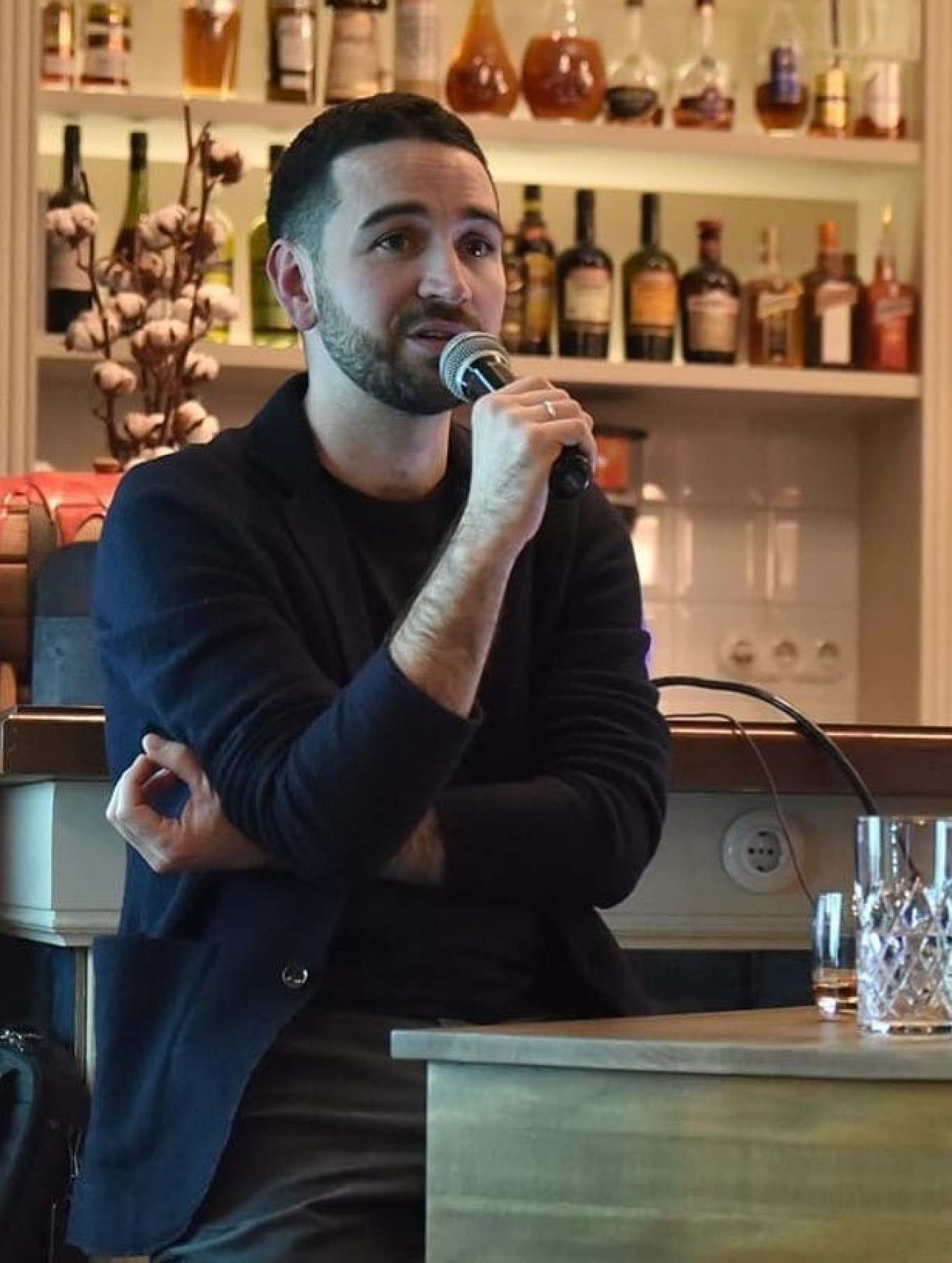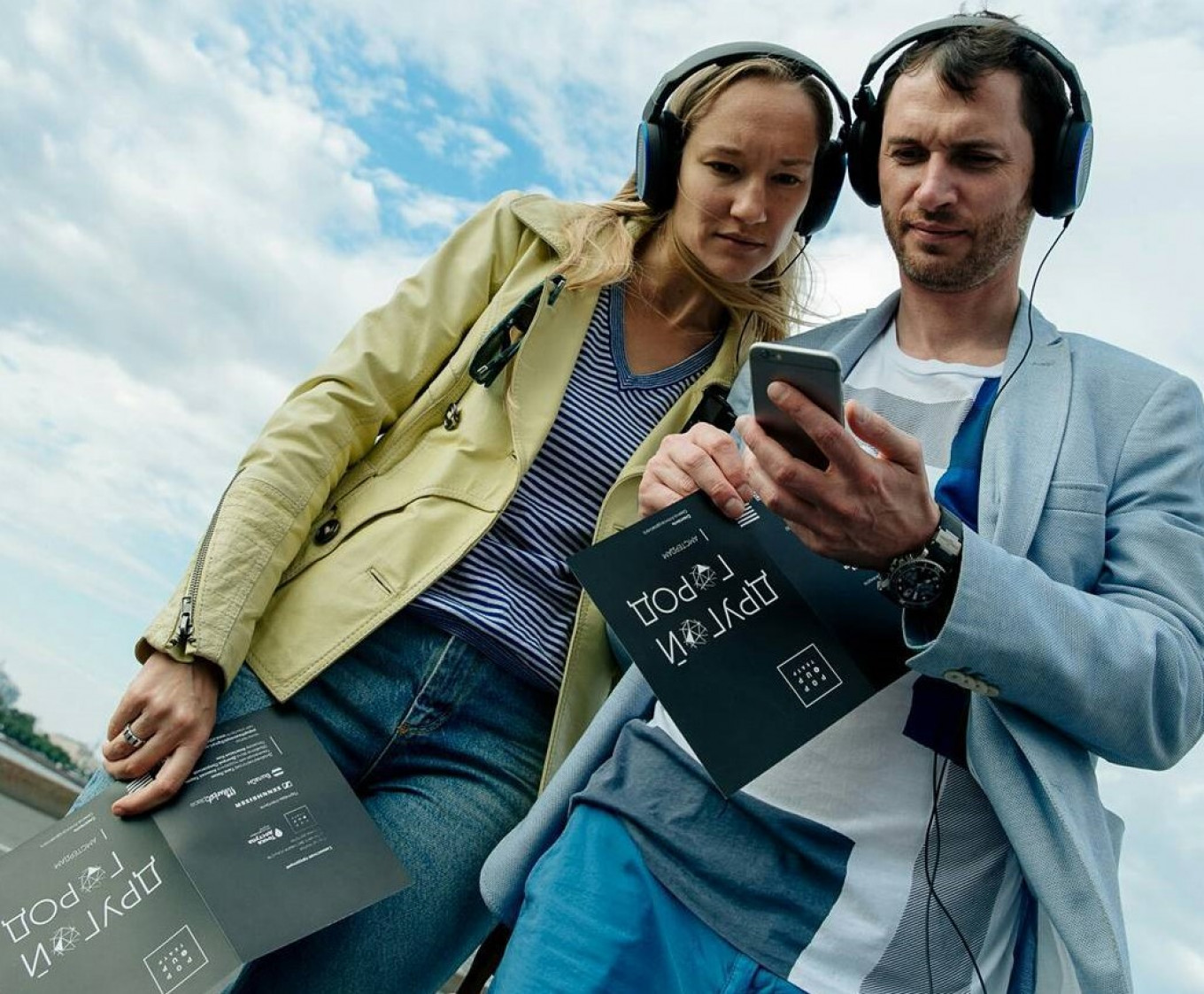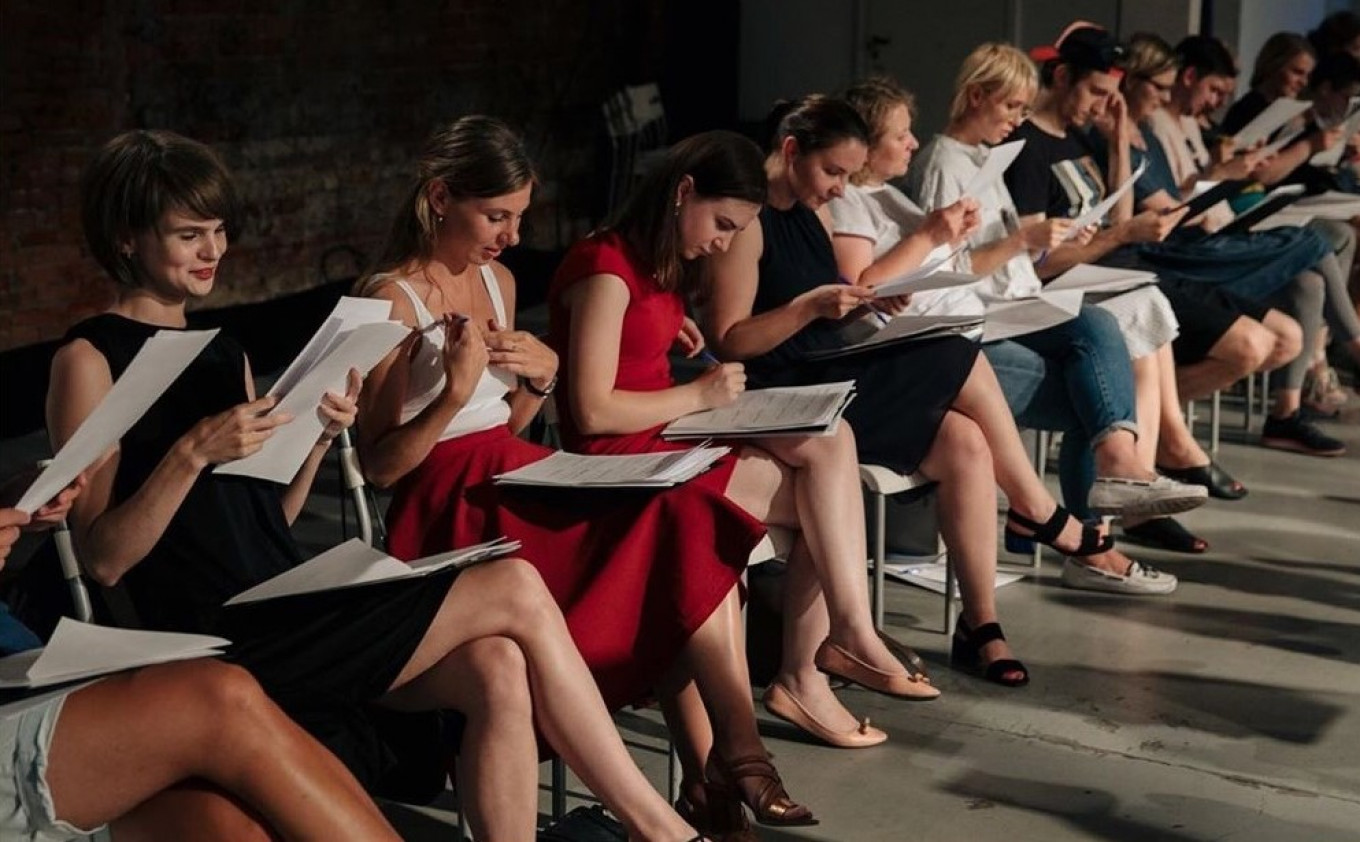In 2020 the independent Pop-Up Theater celebrated its five-year anniversary. Its founder and stage director Semyon Alexandrovsky told The Moscow Times that it began when his wife and producer Anastasia Kim was pregnant. He decided to spend more time at home and turned down offers to perform on tour. In his free time, he and his friend Maxim Fomin, an actor, began to rehearse the play “Fuel” in Alexandrovsky’s kitchen.
The play is based on an interview with the well-known IT-entrepreneur, creator of the ABBYY group, David Yang. The one-man show, performed by Fomin, is similar in form to TED talks. Yang (Fomin) talks about the Moscow Institute of Physic and Technology, the first electronic dictionary, how his professional life ran in parallel with personal life. The result is a story about the search for the meaning of life, the thirst for immortality, and how to change the world for the better.
In 2015, the performance was ready, but there was nowhere to perform. And that was the birth of a new theater.
The first performance site was the Beatnik restaurant. That summer the restaurant was working on the street veranda while it got ready for renovation. Since the space was empty, the owner offered it for a month. There were bare walls and a concrete floor, but Alexandrovsky agreed.
The format of the project gave the theater its name: It was a pop-up project, something temporary, spontaneous, heir to the traditions of British artists in the 1970s who used a garage or someone’s apartment as a shop or a gallery for just a few days.
Alexandrovsky and his colleagues ran a festival of works by independent theaters from St. Petersburg and Moscow in the empty restaurant. In a month they presented more than 30 performances and several concerts. When their time was up, they didn’t begin to look for a new site. Instead, they decided to take a break and think about the future.

The future got busy fast. Even this fall, in between quarantines and restrictions, the Pop-Up Theater had three shows at festivals and eight performances taking place in city locations. Most of them take place on the street or in bars. For example, the site-specific play “Another City” takes place on the embankments of St. Petersburg. The audience walks along with their smartphones, listening to city noises recorded in Amsterdam, Venice, and Paris on headphones.
In the bar trilogy “Detained,” the audience visits bars on Ulitsa Rubinshteina where they drink while the actor Valentin Kuznetsov, dressed in a Soviet police uniform, acts as a guide and narrator. The text was written by playwright Vyacheslav Durnenkov.
“These performances will never be performed on tour because they are associated with the atmosphere of St. Petersburg,” Alexandrovsky said. “They are the part of the city.”
The theater performed in parks and libraries. During the coronavirus lockdown, they did a digital performance called “Marriage” on Zoom.

Unlike state theaters, the Pop-Up Theater doesn’t have its own building or permanent space. The group’s very low operating costs turned out to be a real asset during the pandemic, and the theater was one of the first in the city to begin work again.
But Alexandrovsky believes the main advantage of the Pop-Up Theater over classical theaters is the possibility to communicate directly with the audience. “We often do a performance for a single spectator, but state theaters cannot afford such a luxury,” he said. They also perform for companies.
The main theater set is the center of St. Petersburg. Tickets are sold on the site of the Pop-Up Theater, so people can choose the performance they are interested in and see where it will take place. “The audience is so varied that I can’t define it as one group,” Alexandrovsky said.
The theater has no permanent staff, and all the performers and crew members are hired for a specific project. As a result, “I can definitely say that we pay our artists and crew more than in most theaters in the city,” Alexandrovsky said.
“It may seem strange, but we got through all the difficulties during the first lockdown just fine. We even did a show on Zoom and played it a few times. And we had a performance on Instagram dedicated to the famous graffiti “What for?” (Зачем?) Every day a new letter of the word would appear in Instagram so that people could only read the word by leafing through the story. The context changed daily, making it either humorous or disturbing. The Instagram performance, which was free, is an example of how we work with perception.”
The Pop-Up Theater has four performances scheduled for the next month. For more information about the theater and tickets, see the theater site.


Leave a Reply